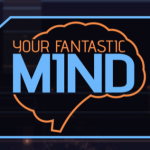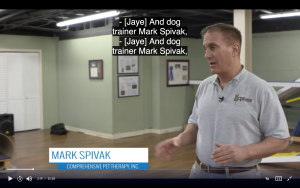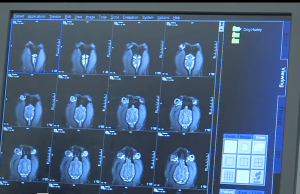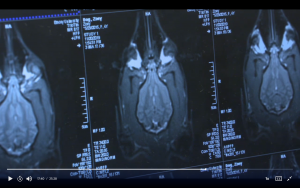CPT Featured on PBS’s Your Fantastic Mind

October 2, 2020
CPT was recently featured in the PBS documentary series “Your Fantastic Mind.” The episode, “Dogs,” premiered on Wednesday, September 14, 2020 and is currently available via online streaming.
Georgia Public Broadcasting (GPB) produced, directed, and edited “Dogs,” which was filmed at CPT and at Emory University. The episode discusses scientific discoveries related to dog cognition developed by The Dog Project co-founded by Dr. Greg Berns of Emory University and CPT’s Mark Spivak.
 The Dog Project is one of the world’s leading canine neuroscience teams. The project has produced 14 peer-reviewed papers and, in addition to Your Fantastic Mind, the team’s work has been featured on 60 Minutes, Nova, CBS This Morning, Time Magazine, and many other notable media programs or articles.
The Dog Project is one of the world’s leading canine neuroscience teams. The project has produced 14 peer-reviewed papers and, in addition to Your Fantastic Mind, the team’s work has been featured on 60 Minutes, Nova, CBS This Morning, Time Magazine, and many other notable media programs or articles.
Canine Neuroscience
Canine neuroscience incorporates functional magnetic resonance imaging (fMRI) and field/behavioral psychological experiments to study the bidirectional relationship between brain activity and behavior. In simple terms, canine neuroscience attempts to answer the questions of:
a) When a dog exhibits a certain behavior what areas of the brain activate?
b) When certain areas of the brain activate what behavior is the dog most likely exhibiting?
c) Can we map the brain activity of dogs exhibiting certain behavioral tendencies?
d) Are there differences in brain structure or activity between dogs of different temperaments or behavior?
e) Can we predict the temperament or behavior of a dog by observing its structural or functional qualities?
The Project’s Discoveries
 The project emphasizes scientific discovery related to canine cognition, emotions, sensory perception, receptive communication, and inhibitory control. The team has provided notable advances regarding:
The project emphasizes scientific discovery related to canine cognition, emotions, sensory perception, receptive communication, and inhibitory control. The team has provided notable advances regarding:
• what brain activity patterns indicate a dog will become an outstanding service dog candidate- or a failure;
• whether dogs tend to emotionally prefer familiar humans versus familiar or unfamiliar dogs;
• whether dogs possess a brain area distinctive to the processing of faces and whether dog faces and human faces are processed in the same or different areas;
• differences in brain activity between dogs possessing exemplary inhibitory control and dogs lacking optimal inhibitory control;
• whether dogs prefer social praise from a human versus a food reward or whether it varies depending upon the temperament and environmental upbringing of the individual dog;
• whether dogs exhibit jealousy, what dogs are most likely to exhibit jealousy, and the brain activity patterns relevant to jealousy;
• which sensory modality enables dogs to learn most effectively- auditory, visual, or olfactory;
• how dogs process human words and whether they process familiar words differently than unfamiliar words;
• whether dogs process odor mixtures elementally (where they cognitively separate each component and nothing is novel) or configurally (where a mixture of A + B is cognitively processed as novel compound C);
• whether dogs have numerical capabilities that allow them to cognitively comprehend differences in quantity; and
• if dogs visually process projected 2-dimensional images similarly to how they process natural 3-dimensional visual information and whether they cognitively understand that a 2-dimensional image is equivalent to the real-life version.
How CPT Has Applied the Project’s Discoveries
The above studies have both practical and scientific applications. For instance, CPT has used information gleaned from The Dog Project to:
• improve field evaluations of prospective service dog candidates;
• upgrade trainer and client education regarding effective human-dog communication;
• enhance trainer and client understanding regarding the importance of inhibitory control and the characteristics of inhibitory control or the lack thereof;
– a lack of impulse or inhibitory control is often a primary etiology of significant behavioral problems, including dog-human aggression, dog-dog aggression, separation anxiety, and refractory housebreaking. Therefore, superior understanding of impulse controls enables CPT trainers to more effectively design client behavior modification programs.
• improve the methodology of reward selection for client dogs, so that trainers may more effectively motivate client dogs and obtain their cooperation during training programs;
• refine trainer understanding of how and when jealousy may trigger conflict between rivals, which is highly valuable when modifying intra-pack dog aggression;
• improve the selection and utilization of verbal commands and hand signals, so that trainers can expedite canine learning;
• improve the selection of command words, how and when to use familiar versus novel words, and how to ascertain a dog’s understanding of a particular command word;
• advance the accuracy of sport and working dogs engaged in scent discrimination functions; and
• improve the determination of optimal size or quantity when designing reward systems for individual dogs.
CPT Participants in The Dog Project
 CPT’s Mark Spivak is one of the co-founders of The Dog Project and has remained involved since its inception. Mark also speaks at scientific conferences and conducts educational seminars for the CPT staff so that our trainers remain above the competition by most effectively employing scientific discoveries from the project.
CPT’s Mark Spivak is one of the co-founders of The Dog Project and has remained involved since its inception. Mark also speaks at scientific conferences and conducts educational seminars for the CPT staff so that our trainers remain above the competition by most effectively employing scientific discoveries from the project.
In addition, CPT Trainer Alex Collier has recently become integral to The Dog Project. Alex trains the volunteers and proctors live MRI sessions on the Emory campus. She has also trained 2 of her personal dogs as MRI volunteers.
CPT Trainers Patricia King and Melissa Nelson have also figuratively joined the party by training personal dogs as MRI volunteers. Moreover, Patricia has represented the project on CBS This Morning.
To stream the “Dogs” episode of Your Fantastic Mind, please click the following link: https://www.gpb.org/television/show/your-fantastic-mind/season/2/dogs.
Sandy Springs, GA
Atlanta, GA


